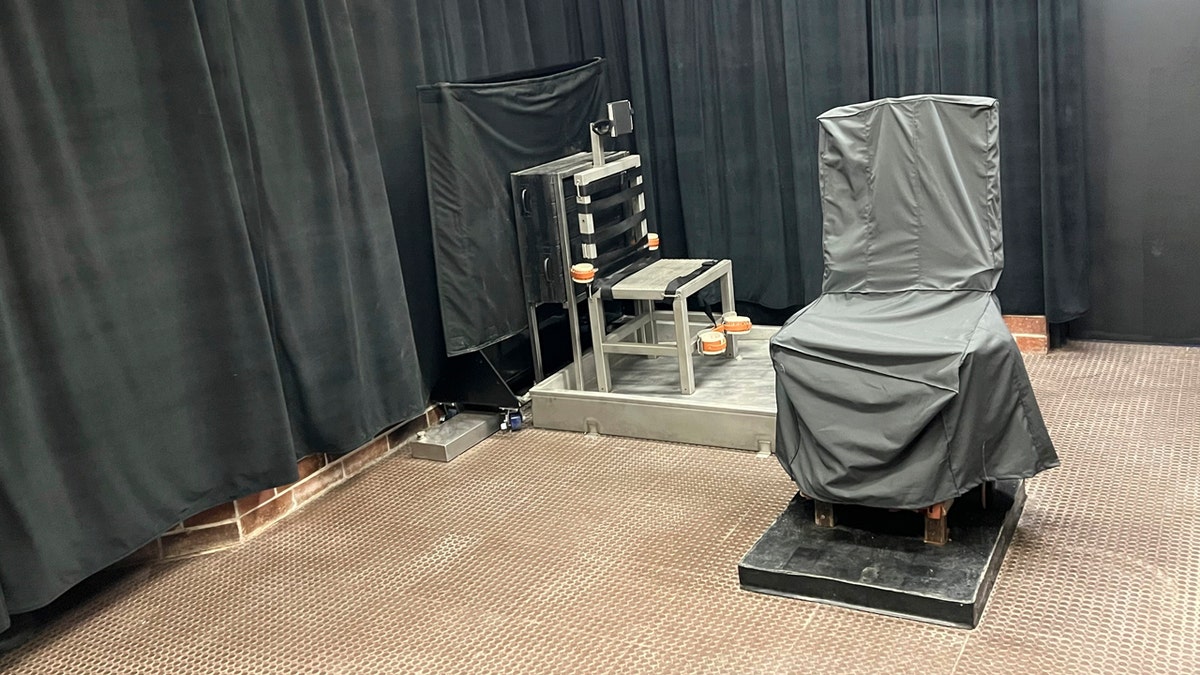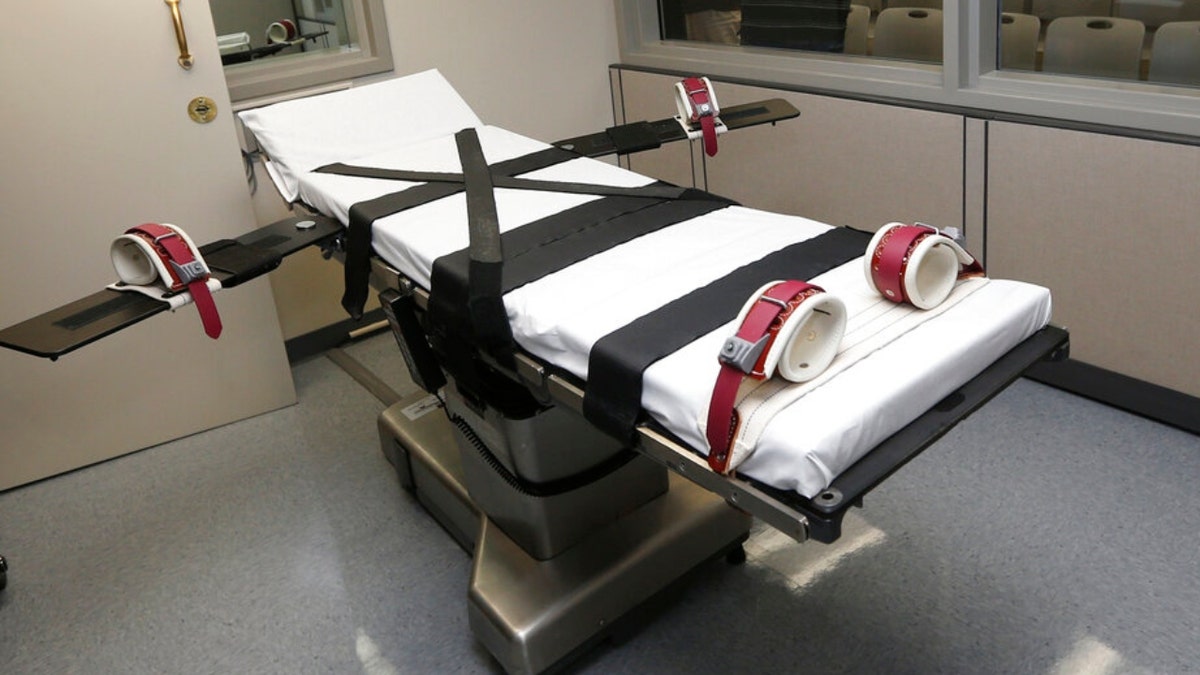Fox News Flash top headlines for September 7
Fox News Flash top headlines are here. Check out what's clicking on Foxnews.com.
A South Carolina inmate forced to choose his execution method left the decision to his lawyer, who reluctantly selected lethal injection rather than the electric chair or a firing squad.
Freddie Owens, 46, said in court papers he cannot choose his execution method because doing so would be taking an active role in his own death and, citing his Muslim faith, he believes suicide is a sin, according to The Associated Press.
Owens' execution is set for Sept. 20 for the 1997 killing of store clerk Irene Graves during a string of robberies in Greenville, which will mark the first time South Carolina has put an inmate to death in more than 13 years after an involuntary pause in executions over struggles in recent years obtaining lethal injection drugs.
His attorney, Attorney Emily Paavola, sent the form to prison officials on Friday telling them to prepare to kill Owens by lethal injection. She also released a statement saying she remains unsure if prison officials have released enough information about the drug used in this method to ensure it will kill him without causing unbearable pain or agony that could rise to the level of cruel and unusual punishment.

Freddie Owens, 46, said he cannot choose his execution method because taking an active role in his death goes against his Muslim faith. (South Carolina Department of Corrections via AP)
"I have known Mr. Owens for 15 years," she wrote. "Under the circumstances, and in light of the information currently available to me, I made the best decision I felt I could make on his behalf. I sincerely hope that the South Carolina Department of Corrections' assurances will hold true."
Had Paavola not made a decision, state law mandates that Owens would have been killed by the electric chair, and he had said he did not want to die that way.
Once one of the busiest states for executions, South Carolina has not carried out the death penalty since 2011 due to trouble in recent years obtaining lethal injection drugs over pharmaceutical companies' concerns that they would have to disclose that they had sold the drugs to state officials.
But the state legislature passed a shield law last year allowing officials to keep lethal injection drug suppliers private and the state Supreme Court ruled that the electric chair and firing squad would also be available as execution methods.
South Carolina previously used a mixture of three drugs, but will now use one drug, the sedative pentobarbital, for lethal injections in a protocol similar to that of the federal government.
Owens is one of six inmates who have exhausted their appeals seeking to avoid execution. South Carolina currently has 32 inmates on death row.
His attorneys have filed several legal motions since his execution date was set two weeks ago in which they sought to delay his death, but there have been no delays thus far.
He had requested to delay his execution, so his lawyers could argue his co-defendant lied about having a plea deal to testify against Owens in exchange for avoiding the death penalty or a life sentence. Co-defendant Steven Golden testified that Owens shot Graves in the head because she was unable to open the safe at the Greenville store 27 years ago.
"My written plea agreement said the death penalty and life without parole were still possible outcomes and there were no specific guarantees about what my sentence would be," Golden wrote in a sworn statement last month. "That wasn't true. We had a verbal agreement that I would not get the death penalty or life without parole."
SOUTH CAROLINA'S FIRST EXECUTION IN MORE THAN 13 YEARS SET FOR NEXT MONTH

If his lawyer had not made a decision, state law mandates that Owens would have been killed by the electric chair, and he had said he did not want to die that way. (South Carolina Department of Corrections via AP, File)
Golden was sentenced to 28 years in prison after pleading guilty to a lesser charge of voluntary manslaughter, court records show.
The store had surveillance video, but it did not show the shooting clearly. Prosecutors never found the weapon used in the shooting and failed to show any scientific evidence linking Owens to the killing.
Prosecutors said the co-defendant's testimony was supported by Owens' confession to his mother, girlfriend and investigators.
State attorneys said concerns over lies about the plea deal and whether jurors could have been biased against Owens after seeing an electronic stun device he was wearing during trial have been handled in multiple appeals and two additional sentencing hearings that also recommended the death penalty after other judges overturned his initial punishment.
"Owens has had ample opportunity to litigate claims regarding his conviction and sentence. He is due no more," the South Carolina Attorney General's Office wrote in a court filing.
Owens' lawyers are also asking for his death sentence to be set aside, at least temporarily, because he was only 19 at the time of the crime and scans show his brain was not fully developed. The lawyers also said a jury was never asked to determine if Owens alone killed the clerk and argued his sentence is too harsh because less than 1% of murder convictions over an armed robbery result in death sentences.
He also sought to delay his execution by arguing the state failed to release enough information about the drug used for lethal injections.
The state Supreme Court said when upholding the new shield law that prison officials had to give a sworn statement that the pentobarbital set to be used under the state's new lethal injection method is stable, pure and potent enough to kill an inmate.
Corrections Director Bryan Stirling said technicians at the State Law Enforcement Division laboratory tested two vials of the sedative and assured him the drugs are adequate, but released no other details.

Owens' execution is set for Sept. 20 for the 1997 killing of store clerk Irene Graves during a string of robberies in Greenville. ((AP Photo/Sue Ogrocki, File))
CLICK HERE TO GET THE FOX NEWS APP
Owens' lawyers asked for more information, including the full report from the lab, the expiration date of the likely compounded drug and how it would be stored, citing a photo of a syringe of an execution drug from 2015 in Georgia that crystalized because it was stored too cold.
The South Carolina Supreme Court ruled Thursday that prison officials had released enough information.
The only way for Owens to avoid execution at this point is for the governor to grant clemency and reduce his death sentence to life in prison. But no governor has done that in the state's 43 executions since the death penalty was restarted in the U.S. in 1976.
Republican Gov. Henry McMaster has said he will follow longtime tradition and not announce his decision until prison officials make a call from the death chamber just moments before the execution is set to be carried out.
The Associated Press contributed to this report.











































